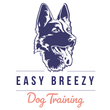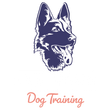September Blues: How Back-to-School Season Can Be Tough on Your Dog (and What You Can Do About It)

September marks a time of transition. For families, it’s the return to routine, a season of backpacks, lunchboxes, and two-legged homework. But amidst the hustle and bustle of back-to-school preparations, one family member might be feeling a little lost: Rover.
Why September Can Be Challenging for Dogs
- Separation Anxiety Resurgence:
During summer, your dog may have gotten used to extra playtime, belly rubs, and long days spent with family. When the house suddenly empties as kids head back to school, your dog might struggle with feelings of loneliness and separation anxiety. - Disrupted Routine:
Dogs thrive on routine. With summer break, they’ve likely settled into a pattern where everyone is home more often. The abrupt switch to a quieter, less active household can leave your pup confused and out of sync. - Less Exercise and Mental Stimulation:
Without kids to engage with, your dog may not get the same level of exercise and mental enrichment they enjoyed over the summer. The sudden lack of interaction can lead to boredom, restlessness, and even destructive behaviour. - Emotional Distress:
Dogs are highly attuned to the emotions of their human family. The stress of getting back into the school routine, early mornings, and rushing out the door can rub off on your dog, leading to changes in behaviour, like being more clingy or looking for trouble.
Signs Your Dog Is Struggling
Keep an eye out for these signs that your dog might be feeling the back-to-school blues:
- Increased barking or whining when left alone
- Pacing or restlessness when the family is preparing to leave
- Chewing, digging, or other destructive behaviours while you’re away
- Changes in appetite or sleep patterns
- Excessive clinginess when you’re home
How to Help Your Dog Adjust
While it’s normal for dogs to need time to adapt, there are ways to ease the transition and keep their tails wagging.
- Gradual Alone Time Practice:
Start preparing your dog for alone time before the first day of school. Gradually increase the time they spend alone by stepping out for short periods and slowly extending your time away. This will help them get used to the quiet again. - Stick to a Routine:
Try to keep consistent feeding, walking, and play schedules, even with the new school year starting. This predictability can provide comfort and stability for your dog. - Provide Mental Stimulation:
Interactive toys, puzzle feeders, and brain games can keep your dog occupied while the house is empty. Try introducing new toys or rotating their favorites to keep things fresh and engaging. Getting them to use their nose with tire them out more so than physical exercise which just increases adrenaline. - Morning Exercise Boost:
Make sure your dog gets plenty of physical activity before everyone leaves for the day. A brisk walk or a game of fetch can help burn off excess energy and reduce anxiety while you're away. This MUST be followed by some nose and scent games to then help calm the dog down. Think of it like a vigorous yoga class followed by a meditation session. You feel nice and relaxed after that! - Quality Time in the Evenings:
When the kids are back home, make time for fun family activities with your dog. Whether it’s a walk, a cuddle session, or practicing some fun circuit exercises, this time helps with bonding with your pooch. - Consider Dog-Friendly Options:
If your dog is really struggling with the quiet, consider doggy daycare a few times a week, a dog walker or arrange playdates with other dogs. These options can provide them with companionship and activity when the house is empty. - Positive Reinforcement:
When your dog handles being alone well, reward them! Positive reinforcement can help them associate the alone time with something good.
Final Thoughts
The back-to-school season can be a challenging time for dogs, but with a little preparation and attention, they can smoothly adjust to the new routine. By understanding what your dog is going through and providing the support they need, you’ll be helping them stay happy, healthy, and well-balanced—no matter how empty the house feels during the day.
Remember, your dog might miss the summer fun, but with a little extra love and attention, they'll be back to their wagging, joyful self in no time.





Leave a comment